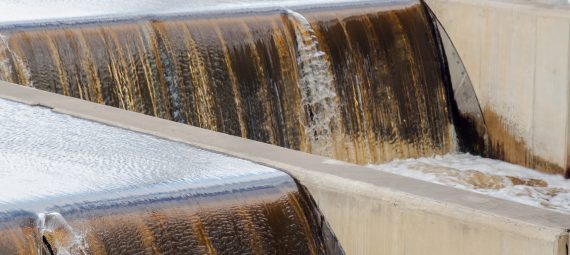Supervisory team: Prof Paul Kemp and Prof Paul White
Centre of Excellence: In-situ and Remote Intelligent Sensing (IRIS)
Project description
The project aims to help develop more environmentally sensitive hydropower for developing nations in South America, Africa and Asia by advancing and translating sensor technology in two key areas. The first focuses on the negative consequences (barotrauma) of fish passage through hydropower turbines due to rapid decompression. In the proposed project, new low cost microsensors developed by project partners (TALTECH, University of Tallin) will be used to quantify conditions experienced by real fish as they pass hydropower dams in the field. Until now, previous assessments of the injury caused by turbine passage has been confined to the laboratory, using hypo-hyperbaric pressure chambers, or by capturing fish assumed to have passed through turbines in large nets at the downstream side of the dam. Currently, there is no understanding of the relationship between the pressure profile experienced by individual fish as they pass through turbines and the resulting injury experienced. This study will use low-cost microsensors that will enable pressure profiles to be collected for actual fish that pass through turbines in the field.
The second component builds on research in which catchment-scale planning of hydropower systems were strategically developed to enhance sustainability. This involves understanding the trade-off between the benefits of electricity generated and the costs of negative impacts on ecosystems services, principally fisheries. As part of this, the decommissioning of redundant dams have an important role to play in integrated management. Focusing on a dam removal project, sensors will be used to monitor vocalising animals that inhabit wetlands (e.g. frogs, birds, and bats). The response (species richness and diversity) of local fauna to changes in fluvial and wetland habitat will be investigated. The low-cost sensors, referred to as “AudioMoths”, were developed at the University of Southampton and enable a move away from expensive acoustic monitoring equipment that use sound data to measure biodiversity and ecosystem health. Audiomoths are inexpensive and small and can provide sufficient spatial and temporal scale coverage to provide high-resolution evaluations of acoustic landscapes.
Key skills An interest in working at the interface between disciplines, numeracy, ability to work overseas, innate curiosity.
Entry Requirements
A very good undergraduate degree (at least a UK 2:1 honours degree, or its international equivalent).
Closing date: applications should be received no later than 31 August 2020 for standard admissions, but later applications may be considered depending on the funds remaining in place.
Funding: full tuition fees for EU/UK students plus for UK students, an enhanced stipend of £15,285 tax-free per annum for up to 3.5 years.
How To Apply
Applications should be made online, please select the academic session 2020-21 “PhD Eng & Env (Full time)” as the programme. Please enter IRIS Centre under the proposed supervisor.
Applications should include:
Curriculum Vitae
Two reference letters
Degree Transcripts to date
Apply online: https://www.southampton.ac.uk/courses/how-to-apply/postgraduate-applications.page
For further information please contact: feps-pgr-apply@soton.ac.uk

